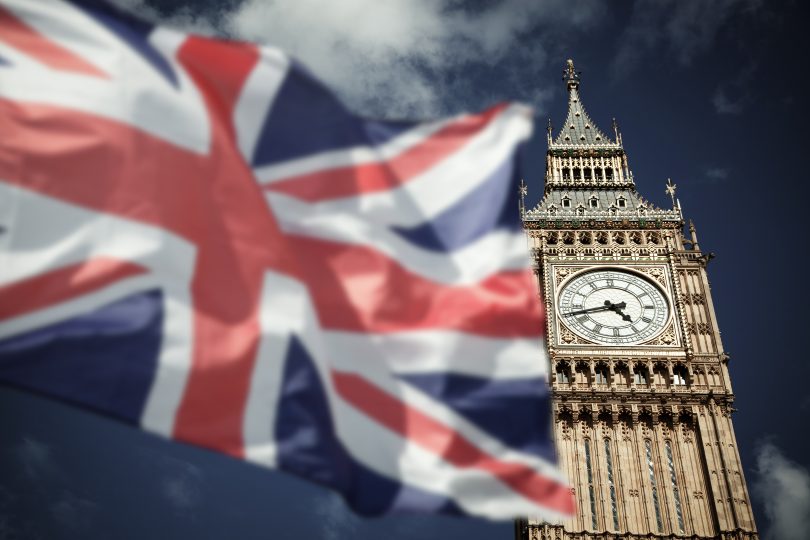PATIENTS may be forced to wait five more years to routinely secure cannabis medication through the U.K.’s health service.
This damming assessment by Prof Mike Barnes, one of the country’s leading medical cannabis experts, follows the publication of a long-awaited report. Since the introduction of legislation to allow for medical cannabis last November less than a handful of patients have been able to secure cannabis prescriptions through the National Health Service (NHS).
Last November the Government also asked its expert panel – The National Institute for Health and Care Excellence (NICE) – to evaluate the clinical use and cost-effectiveness Cannabis Based Medicinal Products (CBMP).
Cannabis Chances on the NHS – ‘Basically Zero’
Its interim findings, published earlier this month, cannot ‘recommend CBMPs for routine use’ – and called for fast-tracked clinical trials to establish an evidence base.
Speaking to CBD Testers Prof Barnes, a neurologist who was been working in the cannabis arena for over almost two decades, says the guidance means the chance of securing an NHS prescription has shrunk from minuscule to ‘basically zero’.
“This a backward step from NICE. It will stop NHS prescriptions for the foreseeable future, because no-one is going to go against the NICE guidelines, although they are not mandatory. We need more research, but we shouldn’t be hung up on Randomized Control Trials as they won’t work for cannabis medicines.
“It’s not one product, it’s a whole family of medicines and the nature, and personalization of cannabis, does not lend itself to placebo-controlled trials. We should not wait to start prescribing until we have those results. We should start prescribing as we go along.
“We can produce good evidence and we should be considering retrospective studies from Canada, Australia and elsewhere; that should not take long, but it depends on whether our medical bodies would take any notice of them.
British Doctors’ Arrogance
“There is a certain arrogance amongst British doctors and the British medical hierarchy that only British evidence counts and they can dismiss evidence from other jurisdictions, which is sad. These jurisdictions are way ahead of us in terms of experience in prescribing, and the potential side-effects. We need to take into account the findings from elsewhere as evidence.
“To carry out the research in two to three years would would be an effort. Our clinicians have been brainwashed into thinking the only evidence that matters is Randomised Control Trials and they will take a lot longer than two to three years, these could take up to five years.”
Prof Barnes believes things could change quickly if there is a change of Government, saying: “The Government cannot tell the doctors to prescribe, but they could make the system for prescribing easier.”
But he went on to say the main issue, now, is to ‘change the hearts and minds of U.K doctors’. Prof Barnes is heavily involved in this having helped establish the Academy of Medical Cannabis and The Medicinal Cannabis Clinicians’ Society.
‘Negative’ Prescribing Guidelines
He continued: “The main issue is the doctors and the doctors bodies, such as the Royal College of Physicians, the British Paediatric Neurology Association and NICE all of which have produced fairly negative guidelines. Other jurisdictions Australia, for example, have produced fairly sensible guidelines on epilepsy, for example, and this system is working well, but we are ignoring the evidence and guidelines from other countries.”
The draft NICE guidance, which is open for further consultation until early September, considers the use of CBMPs for people with intractable nausea and vomiting as a result of chemotherapy, chronic pain, spasticity, and severe treatment-resistant epilepsy.
On epilepsy it says ‘there was a lack of clear evidence that these treatments provide any benefits’.
It recommends nabilone – synthetic THC – as an option for adults with chemotherapy-induced nausea and vomiting, but does not recommend Sativex for treating spasticity in people with multiple sclerosis, saying ‘it’s not cost-effective at its current list price’.
Findings Are ‘Absolutely Ridiculous’
Both Prof Barnes and Hannah Deacon, whose son Alfie Dingley is one of only possibly only two patients to receive a CBMP through the NHS, had requested to sit on the NICE panel. Ms Deacon was told that she could, but only if she sacrificed any media opportunities to talk about cannabis.
Prof Barnes said the panel was ‘stacked with people against cannabis’, saying the result was a ‘forgone conclusion’. When asked for her thoughts on NICE’s findings Ms Deacon told Hemp And CBD Magazine: “I think this it is absolutely ridiculous! Are we saying that every country in the world with medical cannabis legislation is wrong? Are we that arrogant?
“I think we are pharmaceuticalising cannabis, and that is wrong. It does not lend itself to a Randomised Controlled Trial process, because of the nature of the plant.”
Boom Time for Black Market
Prof Barnes reflected ruefully on the journey following the U.K. Government’s swift change of heart, after medical cannabis which came storming into the mainstream media, last summer, through cases like those of Alfie Dingley.
“I really did not expect to find us in the position we are in now. I thought back in November we had cracked it. We had changed the law and it would just be a matter of slowly and surely, as doctors gained more confidence, but it looks like its going to take a lot longer than anticipated.
“It’s really sad, the black market will be thriving as we have got so much publicity about the benefits of cannabis and what it can do, more people will want to try it and as they can’t get it off the NHS or privately, because it’s too expensive for most, then they will get it from the illicit market. I think the criminals are rubbing their hands in joy at the publicity they are getting for their product. It’s crazy.”
Paul Chrisp, director of the Centre for Guidelines at NICE, said it recognised that some people will be ‘disappointed’ with its findings, saying there was lack of ‘robust evidence base for these mostly unlicensed products’.








I think those “doctors” who have financial incentive from pharmaceutical companies to block patient access to cannabis should face criminal investigation.
I am a chronic pain sufferer and thanks to those greedy evil people who call themselves doctor I must suffer unimaginable torture every day or I become a criminal.
Why they are not in jail? Why such a blatant corruption can continue? Why police prefers to arrest patients and medicine providers (called dealers) instead getting onto this clique?